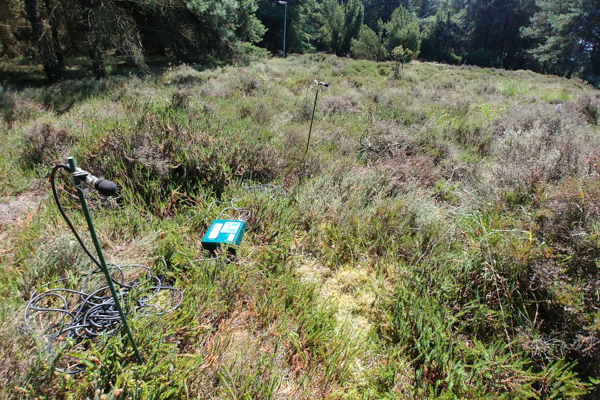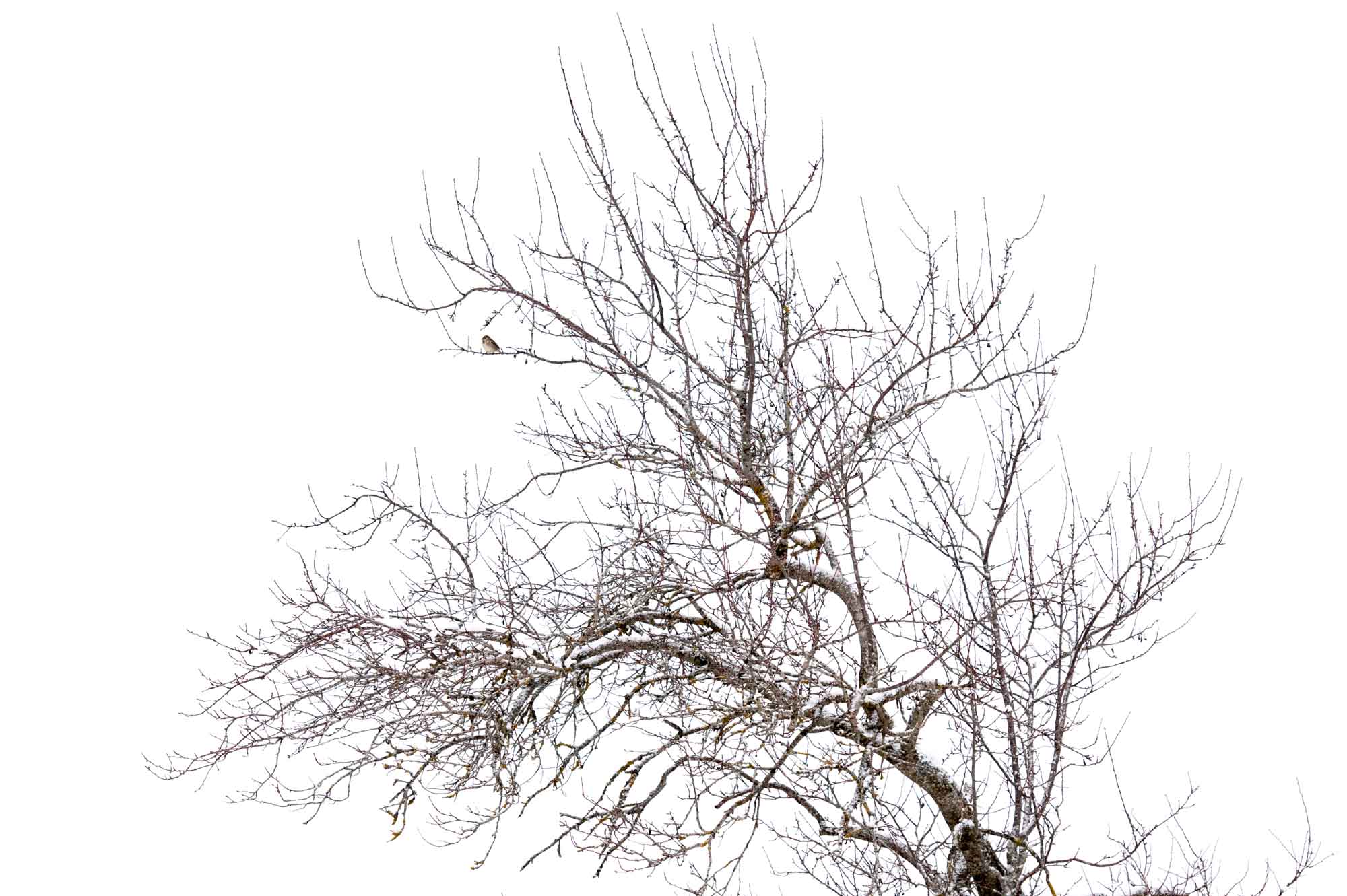













Research scope
I am a conservation biologist interested in the human pressures on biodiversity (i.e. communities, functional traits, behaviour). I try as much as possible to make my work applied in order to propose solutions to limit human's footprint on ecosystems and understand what are the most effective possibilities for change in our society today.
My work focuses around several major themes:
the biodiversity-agriculture relationship, mainly focused on agricultural practices linked to inputs and tillage. In particular, I work on small changes realist for farmers in conventional farming which generate strong ecological gains for biodiversity, by studying farming systems that do not result in yield losses.
the impact of wind energy on biodiversity: in particular, I am studying a type of impact that has so far been ignored by assessment impact studies and the environmental authority, habitat loss by revulsion. I also work on metadata needed in French environmental assessment/monitoring studies to answer a wide range of questions, and how standardize the data transmitted by the consulting offices at national scale.
the ecological offsetting and ecological equivalence in farming contexts, which is a particularly applied subject that aims to (i) quantify the habitat losses generated by any development project to make them compensable and (ii) find equivalent alternatives in terms of biodiversity to a given offsetting measure, in order to facilitate the implementation and to contextualize offsetting to avoid blocking situations.
the artificial light at night (ALAN), for which my work focuses mainly on the spatial variation of effects on biodiversity as a function of the landscape context, as well as on changes in bat behaviour in relation with light parameters, and in particular changes in the use of ecological corridors for moving and foraging.
Such societal issues often involve to work directly with stakeholders and to understand the social levers to transfer my research into the real life, seeking the best trade-offs to prevent this new knowledge from ever being useful in halting the decline of biodiversity.
Key words: Acoustic monitoring – Applied ecology – Artificial light at night – Bats – Birds – Conservation agriculture – Conservation biology - Ecological offsetting – Farming practices – Landscape ecology – Statistical modelling – Wind energy
Publications
- Barré K., Le Viol I., Julliard R., Pauwels J., Newson S., Julien J-F., Claireau F., Kerbiriou C. & Bas Y. 2019. Accounting for automated identification errors in acoustic surveys. Methods in Ecology and Evolution, 00: 1-18. Download
- Barré K., Le Viol I., Bas Y., Julliard R. & Kerbiriou C. 2019. Addendum to “Estimating habitat loss due to wind turbine avoidance by bats: Implications for European siting guidance” [Biol. Conserv.] 226, 205–214: Wind turbine impact on bat activity is not driven by siting altitude. Biological Conservation, 235: 77-78. Download
- Claireau F., Bas Y., Pauwels J., Barré K., Machon N., Allegrini B., Puechmaille S., and Kerbiriou C. 2019. Major roads have important effects on insectivorous bats activity. Biological Conservation, 235: 53-62. Download
- Omar M., Schneider-Maunoury L., Barré K., Al Sayed N., Halwani J. & Machon N. 2019. Dynamics of colonization and extinction of plant species in alignment tree bases of Paris (France). Ecology and Evolution, 00: 1-15. Download
- Omar M., Al Sayed N., Barré K., Halwani J. & Machon N. 2018. Drivers of distribution of spontaneous plant communities and species at urban tree bases. Urban forestry & urban greening, 35: 174-191. Download
- Barré K., Le Viol I., Bas Y., Julliard R. & Kerbiriou C. 2018. Estimating habitat loss due to wind turbine avoidance by bats: Implications for European siting guidance. Biological Conservation, 226: 205-214. Download
- Barré K., Le Viol I., Julliard R. & Kerbiriou C. 2018. Weed control method drives conservation tillage efficiency on farmland breeding birds. Agriculture, Ecosystems and Environment, 256: 71-84. Download
- Barré K., Le Viol I., Julliard R., Chiron F & Kerbiriou C. 2017. Tillage and herbicide reduction mitigate the gap between conventional and organic farming effects on insectivorous bats. Ecology and Evolution, 00:1–11. Download
- Coly R., Barré K., Gourdain P., Kerbiriou C., Marmet J. & Touroult J. 2017. Études chiroptérologiques dans les dossiers réglementaires éoliens : disponibilité de l’information et conformité avec les recommandations nationales et européennes. Naturae, 3: 1-10. Download
Student supervision
- 2019
Iuna Thomas, Master 2, Université Rennes 1 (CESCO), Influences croisées du spectre et de l’intensité lumineuse des LEDs sur l’usage des continuités écologiques par les chiroptères – Financement FRB-AFB
Mélanie Darnault, Master 2, Université Rennes 1 (Groupe Mammalogique Breton), Elaboration d’une stratégie de suivi des chiroptères anthropophiles au gite - 2018
Mélanie Darnault, Master 1, Université Rennes 1 (Bretagne Vivante), Influence des facteurs climatiques sur la phénologie des espèces de Chiroptères sur deux sites de swarming (Bretagne, France)
Yann Parmentier, Master 2, Université de Reims (Fédération départementale des chasseurs du Jura), Evaluation de mesures agro-environnementales pour l’avifaune nicheuse : cas du semis direct et du retard de fauche dans le Jura - 2016
Paul Nicolas, Master 1, EBE-MNHN (AgroParisTech), Impacts de différents systèmes de production de blé (biologique, labour et non labour conventionnels) sur les chiroptères - 2015
Roger Coly, Master 2 Pro, Université de Picardie (CESCO), Evaluation des possibilités d'exploitation des données Chiroptères collectées dans le cadre d'implantation d'éoliennes (études d'impact et suivis post-implantatoires)
Anaïs Demagny, Master 1, EBE MNHN (CESCO), Relation entre l'occurrence passée et présente des colonies de chiroptères en fonction de l'évolution de l'occupation du sol. Cas du Grand rhinolophe (Rhinolophus ferrumequinum) dans les Pays de la Loire
Mathilde Pau, Master 1, EBE MNHN (CESCO), Impact des variables d'usages des sols sur la probabilité de disparition des haies pour l'optimisation des mesures compensatoires
Talks
- Barré K., Dupuis P., Challéat S., Kerbiriou C., Ing R. K., Lapostolle D., Le Viol I., Spoelstra K., Zissis G. (2019) Caractérisation de l’influence des paramètres lumineux des LEDs sur les mouvements de chiroptères le long des continuités écologiques. Journée jeunes chercheurs « infrastructures, écologie et paysage, sociétés et territoires » - AgroParisTech – Paris 1 – ITTECOP, 24 janvier 2019 – Paris
- Barré K. (2018) Pratiques agricoles et biodiversité : impacts, services rendus et solutions. Journée TCS 14 décembre 2018 – Périgueux
- Claireau F., Kerbiriou C., Puechmaille S., Allegrini B., Machon N., Bas Y., Julien J-F., Pauwels J., Barré K., Petit E., Jan P-L., Charton F. & Braga C. (2018) Impact of major roads on bats and effectiveness of bat overpasses. Bats & Infrastructure, 27th November – Stockholm
- Bas Y., Newson S., Barré K., Julien J-F, Bas D. & Kerbiriou C. (2018) Articulating citizen science, semi-automatic identification and free web services for long-term acoustic monitoring: examples from France and UK. 10th International Conference on Ecological Informatics, 24tt-28th September – Jena
- Barré K., Le Viol I., Julliard R., Bas Y., Julien J.F., Chiron F. & Kerbiriou C. (2018) Mesurer et compenser l’impact de l’éolien sur la biodiversité en milieu agricole - Principaux résultats «chauves-souris» de la thèse. Rencontres nationales chauves-souris SFEPM – Bourges
- Barré K., Le Viol I., Bas Y., Julliard R., Marmet J., Julien J.F. & Kerbiriou C. (2018) L’éolien est-il durable pour la biodiversité ? Séminaire comment maitriser les impacts écologiques des énergies renouvelables, 15 février – Paris
- Barré K., Le Viol I., Julliard R., Chrion F. & Kerbiriou C. (2017) L’impact des pratiques agricoles en système biologique et conventionnel sur les chauves-souris : zoom sur la réduction du travail du sol et de l'usage d'herbicides. Rencontres naturalistes d’Île-de-France, 2 décembre – Paris
- Barré K., Le Viol I., Julliard R., Bas Y. & Kerbiriou C. (2017) Les méthodes scientifiques d’évaluation de l’impact des infrastructures renouvelables sur la biodiversité : cas des éoliennes et des chauves-souris. Journée FRB Biodiversité et transition énergétique, 5 octobre – Paris
- Bas Y., Newson S., Barré K., Julien J-F. & Kerbiriou C. (2017) Articulating citizen science, semiautomatic identification and free web services for long-term acoustic monitoring: examples from France and UK. 14th European bat research symposium, 1st-5th August – Donostia
- Barré K., Le Viol I., Julliard R., Chrion F. & Kerbiriou C. (2017) Effects of tillage and herbicide intensification on wheat crops attractiveness for bats: a comparison of three conventional and one organic farming systems. Ecology and Agriculture Summit for Young Scientists (EASYs), 22th-24th march – Chizé
- Barré K., Millon L., Le Viol I., Julliard R. & Kerbiriou C. (2017) L’équivalence entre mesures compensatoires agroécologiques de projets éoliens : support d’objectivation face à la difficulté d’application de la séquence ERC. Colloque éviter réduire compenser, 30 & 31 Mars – Montpellier
- Barré K., Le Viol I., Julliard R. & Kerbiriou C. (2016) Where implant wind turbines and their offset measures in a farming landscape to mitigate the negative impacts of the establishment on bats? International Conference on Ecological Sciences, 24th-28th october – Marseille
- Barré K., Le Viol I., Julliard R. & Kerbiriou C. (2016) Compenser l’éolien avec le monde agricole: un dispositif gagnant-gagnant basé sur des mesures d’équivalence de biodiversité. Journée des doctorants DIM ASTREA, 25 mars, académie d’agriculture – Paris
Posters
- Barré K., Deana T., Dumont A., Kerbiriou C., Le Viol I., Pauwels J., Spoelstra K., Vernet A., Vincent S. (2018) Landscape-dependent effects of artificial light on bat activity. CESCO. ALAN conference – Salt Lake City
- Barré K., Le Viol I., Julliard R., Bas Y. & Kerbiriou C. (2017) Wind energy impact on bat activity: an omitted long-distance concern. CESCO. 5th International Berlin Bat Meeting – Berlin
- Barré K., Le Viol I., Julliard R. & Kerbiriou C. (2016) Influence des éoliennes sur la fréquentation des haies et leurs abords par les Chiroptères. CESCO. Rencontres nationales chauves-souris SFEPM – Bourges
- Barré K., Kerbiriou C. & Vernet A. (2016) Relation entre le sexe-ratio des Chiroptères et l’altitude en Rhône-Alpes. LPO Drôme & CESCO. Rencontres nationales chauves-souris SFEPM – Bourges
- Barré K., Millon L., Bernardin F., Compère P., Le Viol I., Julliard R. & Kerbiriou C. (2015) Implementation of ecological mitigation installations of wind turbines in farming landscape: a win-win project for farmers and a wind farmer developer. CESCO & Agrosolutions. European Wind Energy Association annual event – Paris
- Barré K., Le Viol I., Julliard R. & Kerbiriou C. (2015) How offset residual impacts on bats and birds of wind farm? CESCO. REVER 2015 – Strasbourg
- Barré K., Vincent S., Daena T. & Kerbiriou C. (2014) Les différentes échelles d’influence des habitats sur les Chiroptères : un facteur incontournable pour leur prise en compte dans les projets d’aménagement du territoire. LPO Drôme & CESCO. Rencontres nationales chauves-souris SFEPM – Bourges
- Barré K., Vernet A., Vincent S. & Daena T. (2014) Outils d’aide à la conservation des Chiroptères (ENFA et MAXENT) : cas du petit rhinolophe (Rhinolophus hipposideros) dans les vallées de la Gervanne et de la Sye. LPO Drôme. Rencontres nationales chauves-souris SFEPM – Bourges
Career
2019 Post-doctoral researcher – Metadata needed to improve knowledge on understanding, predicting and offseting the impacts of wind turbines on biodiversity, CESCO-MNHN
2018–2019 Post-doctoral researcher – Impacts of artificial light at night on corridor use and flight behaviour of insectivorous bats, CESCO-MNHN & NIOO-KNAW
2014–2017 PhD – Measure and offset wind energy impacts on biodiversity in farming areas. Supervised by Christian Kerbiriou, Isabelle Le Viol and Romain Julliard, CESCO-MNHN Download thesis
2013–2014 Project engineer – Engineering consultants, Calidris & Latitude UEP
2011–2013 Msc Ecology and Engineering of continental and coastal wetlands, Angers University
2009–2011 Degree Biology of Organisms and Populations, Angers University
2007–2009 BTEC Higher National Diploma Management and Nature Protection, Briacé Le Landreau

